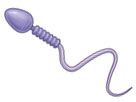Our Health Library information does not replace the advice of a doctor. Please be advised that this information is made available to assist our patients to learn more about their health. Our providers may not see and/or treat all topics found herein.
Testicular Biopsy
Test Overview
A testicular biopsy is a test to remove a small sample of tissue from one or both testicles. The tissue is then looked at under a microscope.
The testicles (testes) are oval-shaped glands that hang in the scrotum under the base of the penis. The testes produce sperm (which is needed for reproduction) and male hormones, such as testosterone.
Why It Is Done
A testicular biopsy may be done to help find the cause of male infertility. But this is rare. It may also be done if both of the following are true:
This test is not usually used to find testicular cancer. If your doctor thinks you may have cancer, you will probably have an open surgical procedure called an orchiectomy.
A testicular biopsy may also be done to get sperm for in vitro fertilization for intracytoplasmic sperm injection (IVF-ICSI).
How To Prepare
If you take aspirin or some other blood thinner, ask your doctor if you should stop taking it before your test. Make sure that you understand exactly what your doctor wants you to do. These medicines increase the risk of bleeding.
Tell your doctor ALL the medicines, vitamins, supplements, and herbal remedies you take. Some may increase the risk of problems during your test. Your doctor will tell you if you should stop taking any of them before the test and how soon to do it.
If the biopsy is done under local anesthesia, you don't need to do anything else to prepare.
If the biopsy is done under general anesthesia, your doctor will tell you how soon before surgery to stop eating and drinking. Follow the instructions exactly, or your surgery may be canceled. If your doctor has told you to take your medicines on the day of surgery, please do so using only a sip of water.
Be sure you have someone to take you home. Anesthesia and pain medicine will make it unsafe for you to drive or get home on your own.
How It Is Done
This test can be done in the doctor's office, a day surgery clinic, or a hospital operating room. Depending on why the test is being done, you may have a needle biopsy or an open biopsy.
Before an open biopsy, an intravenous line (I.V.) is inserted in your arm. You will get a sedative medicine about an hour before the test.
You will lie on your back on an exam table. The skin over your testicle is cleaned with a sterile solution. The area around it is covered with sterile cloth. Your doctor will wear gloves. It is very important that you do not touch this area.
A local anesthetic will be injected into the scrotum to numb the area. Then a small cut is made through the skin. A tiny piece of testicular tissue is removed, and the cut is closed. The procedure may be done on the other testicle as well. The scrotal area is then bandaged.
If general anesthesia is used, you will be asleep during the procedure. But the same method will be used.
For a needle biopsy, a local anesthetic is used to numb the area. A special needle is used to remove a sample. It usually doesn't require a cut in the skin.
How long the test takes
The biopsy usually takes 15 to 20 minutes.
How It Feels
You will feel a brief sting when the I.V. line is put in or when the local anesthetic is given. Other than that, you should feel no pain.
Risks
There is a small risk of bleeding that lasts for a long time or of infection from this test. There is no risk of erection problems. If general anesthesia is used, there is a small risk of a problem from anesthesia.
Results
The results of a testicular biopsy may help figure out what is causing problems with sperm. Depending on the results, a biopsy may show what kind of treatment, if any, is an option.
Results from the biopsy are usually ready in 2 to 4 days.
A pathologist looks at the sample through a microscope to check for anything abnormal with the sperm.
There are many reasons why sperm may not develop normally. These include problems caused by undescended testicles, varicoceles, and mumps.
Sometimes sperm development looks normal, but a semen analysis test shows reduced or absent sperm. In that case, there may be something blocking the sperm.
Related Information
Credits
Current as of: May 5, 2025
Author: Ignite Healthwise, LLC Staff
Clinical Review Board
All Ignite Healthwise, LLC education is reviewed by a team that includes physicians, nurses, advanced practitioners, registered dieticians, and other healthcare professionals.
Current as of: May 5, 2025
Author: Ignite Healthwise, LLC Staff
Clinical Review Board
All Ignite Healthwise, LLC education is reviewed by a team that includes physicians, nurses, advanced practitioners, registered dieticians, and other healthcare professionals.
This information does not replace the advice of a doctor. Ignite Healthwise, LLC disclaims any warranty or liability for your use of this information. Your use of this information means that you agree to the Terms of Use and Privacy Policy. Learn how we develop our content.
To learn more about Ignite Healthwise, LLC, visit webmdignite.com.
© 2024-2025 Ignite Healthwise, LLC.






